Gratz Area Veterans Monument – East Side
Posted By Norman Gasbarro on May 29, 2011
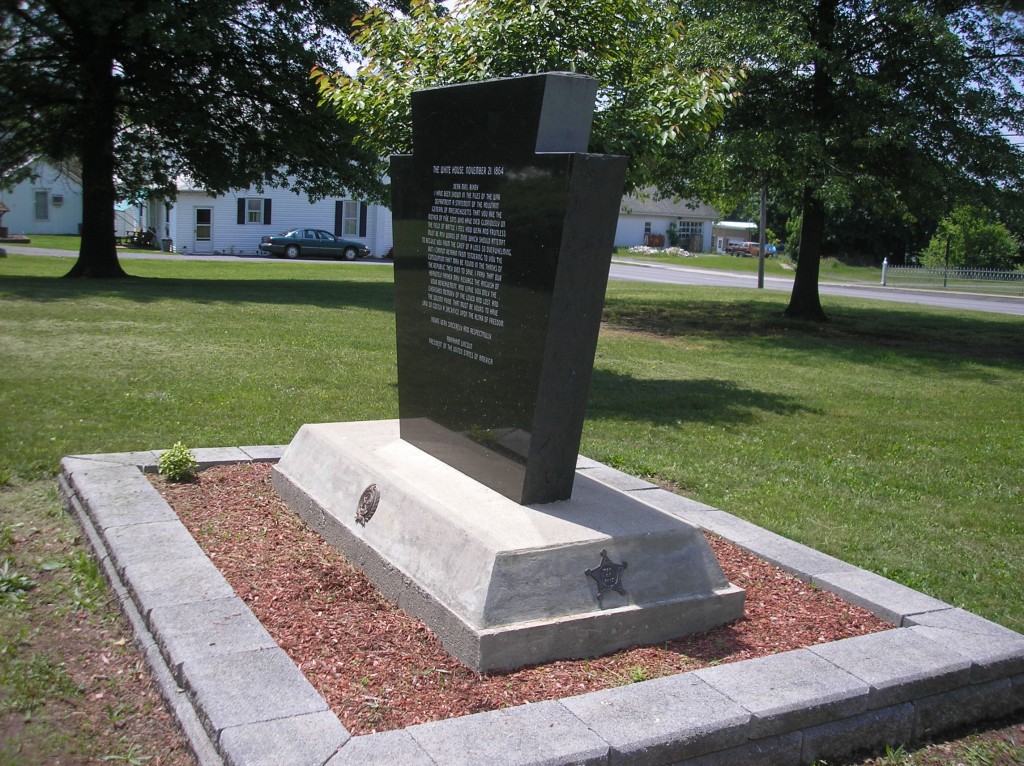 A previous post entitled Gratz Area Veterans Monument, was presented here in November 2010 and discussed the memorial that is located in front of the Gratz Community Center on Center Street in Gratz, Dauphin County, Pennsylvania. One face of that monument, the side that looks east, was not mentioned. The east side is the face that pertains most directly to the Civil War and features a quote from a letter written by President Abraham Lincoln to the mother of five soldiers who supposedly lost their lives in the Civil War. That letter is considered to be a model personal response of a president to a family because of their wartime sacrifice to save the nation.
A previous post entitled Gratz Area Veterans Monument, was presented here in November 2010 and discussed the memorial that is located in front of the Gratz Community Center on Center Street in Gratz, Dauphin County, Pennsylvania. One face of that monument, the side that looks east, was not mentioned. The east side is the face that pertains most directly to the Civil War and features a quote from a letter written by President Abraham Lincoln to the mother of five soldiers who supposedly lost their lives in the Civil War. That letter is considered to be a model personal response of a president to a family because of their wartime sacrifice to save the nation.
The White House,
Washington, Nov. 21, 1864.Dear Madam,
I have been shown in the files of the War Department a statement of the Adjutant General of Massachusetts that you are the mother of five sons who have died gloriously on the field of battle. I feel how weak and fruitless must be any word of mine which should attempt to beguile you from the grief of a loss so overwhelming. But I cannot refrain from tendering you the consolation that may be found in the thanks of the Republic they died to save. I pray that our Heavenly Father may assuage the anguish of your bereavement, and leave you only the cherished memory of the loved and lost, and the solemn pride that must be yours to have laid so costly a sacrifice upon the altar of freedom.
Yours, very sincerely and respectfully,
A. Lincoln
A dramatic reading of the letter was part of the feature film Saving Private Ryan.
All that exists today is a facsimile of the original letter to Mrs. Bixby.
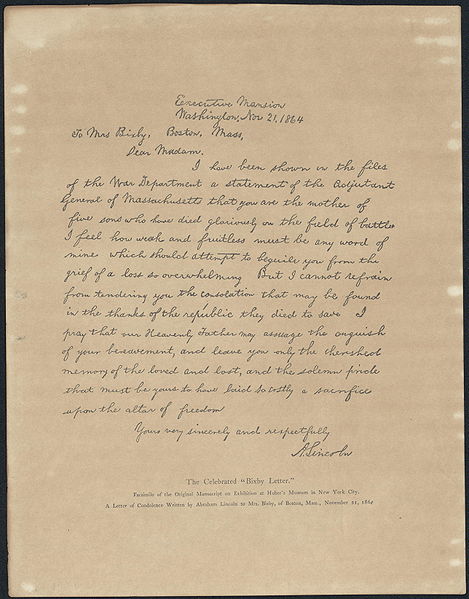 The story of how the letter came about is fairly clear. Gov. John A. Andrew of Massachusetts received a report from his Adjutant General, William Shouler that Mrs. Lydia Bixby had five sons who died in battle fighting on the Union side. Andrew sent the report to Secretary of War Edwin Stanton with a recommendation that President Abraham Lincoln send the woman a personal letter of honor and condolence. Stanton obliged by having the War Department send the official records of the five men to Lincoln along with the request for the letter.
The story of how the letter came about is fairly clear. Gov. John A. Andrew of Massachusetts received a report from his Adjutant General, William Shouler that Mrs. Lydia Bixby had five sons who died in battle fighting on the Union side. Andrew sent the report to Secretary of War Edwin Stanton with a recommendation that President Abraham Lincoln send the woman a personal letter of honor and condolence. Stanton obliged by having the War Department send the official records of the five men to Lincoln along with the request for the letter.
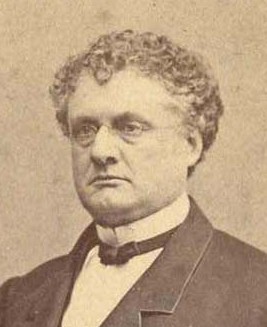
Gov. John A. Andrew (1818-1867).
Unfortunately, there was little fact checking and it subsequently came out that the War Department had not supplied the president with correct information. Only two of Mrs. Bixby’s sons actually died in battle – still a tragic loss. However, Lydia Bixby’s motives were questioned in presenting the original information that became part of the Adjutant General’s report. Stories were circulated that after she received the letter, she angrily destroyed it, because she did not have any sympathies with the Union cause or with Lincoln. In any event, the original letter no longer exists. In her defense, she may have believed that all her sons had died when she lost touch with them and they did not return home.
Eventually, the truth about her sons came out.
According to Wikipedia, the actual fate of Mrs. Bixby’s sons was as follows:
- Pvt. Arthur Edward Bixby, Company C, Massachusetts 1st Heavy Artillery (served 24 June 1861 – 28 May 1862). Absent without official leave. Mrs. Bixby claimed that he had joined underage and without permission, which led to a discharge order. He had already absented himself by the time the order arrived.
- Sgt. Charles N. Bixby, Company D, 20th Massachusetts (18 July 1861 – 3 May 1863). Killed near Fredericksburg, Virginia.
- Cpl. Henry C. Bixby, Company K, 32nd Massachusetts (1862 – 1864)
Captured in 1864, paroled, and honorably discharged that December. (Listed as killed at Gettysburg in Schouler’s records.) - Pvt. Oliver C. Bixby, Jr., Company E, 58th Massachusetts (26 February 1864 – 30 July 1864). Killed near Petersburg.
- Cpl. George A. Bixby, Company H, 25th Massachusetts (17 September 1861 – 7 July 1864). Captured at Petersburg. Later army pension records showed that he was held prisoner and may have deserted to the enemy. He presumably enlisted under the name “George Way”, however this and his final fate are not clear.
Despite any controversies surrounding the history and sending of the “Bixby Letter,” it remains one of the classic documents of American history. Written in wartime by a president with full command of language, it captured the feeling and emotion of the moment – a nation at war, sons lost in battle, and a people that was grateful and thankful for sacrifices to save the Republic. The expression is timeless and it is a fitting complement to the Gratz Area Veterans Monument!
Some of the information for this post was taken from Wikipedia, including the portrait of Gov. Andrew and the facsimile of the letter.
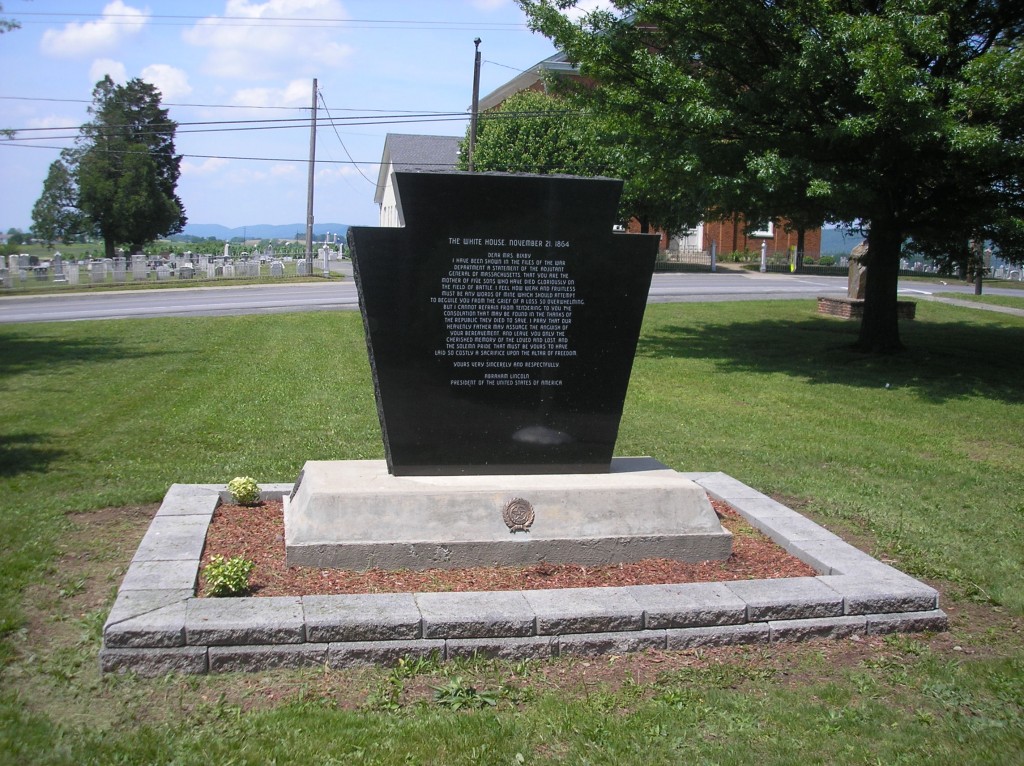
The east face of the Gratz Area Veterans Monument. Looking west toward Gratz Union Cemetery and Simeon Lutheran Church.
 ;
;
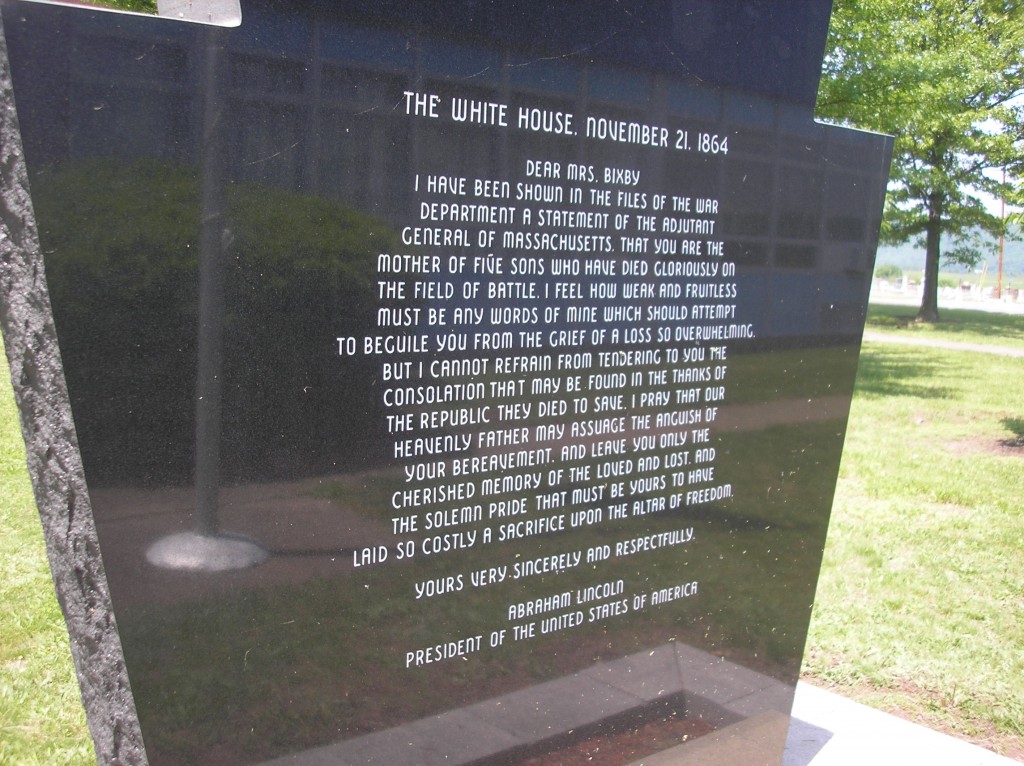


The information for the 5th Bixby son listed is incorrect. George Way Bixby was in Company B, 56th Massachusetts Infantry. He enlisted on March 16, 1864 under the name George Way, supposedly to conceal his enlistment from his wife. He was captured at Petersburg on July 30, 1864. He was first sent to Richmond and was later sent to Salisbury Prison, arriving there on October 09, 1864. His fate after that remains uncertain. Army records indicate that two different former prisoners of war at Salisbury gave differing accounts of George Bixby’s fate. One soldier said he was sure that he joined the Confederate army while the other said Bixby died and before he did, gave him a message to forward to Bixby’s family.
Also I feel I should point out that the Wikipedia author seems that the Battle of Gettysburg, where Henry Bixby was captured, occurred in 1864 instead of 1863